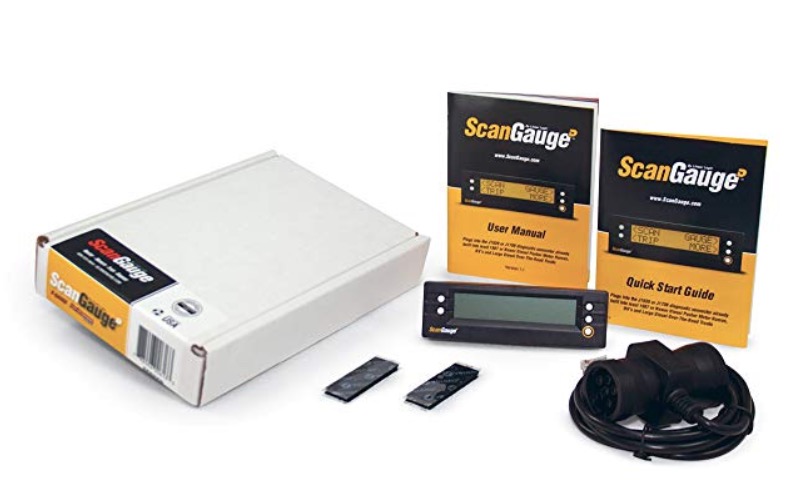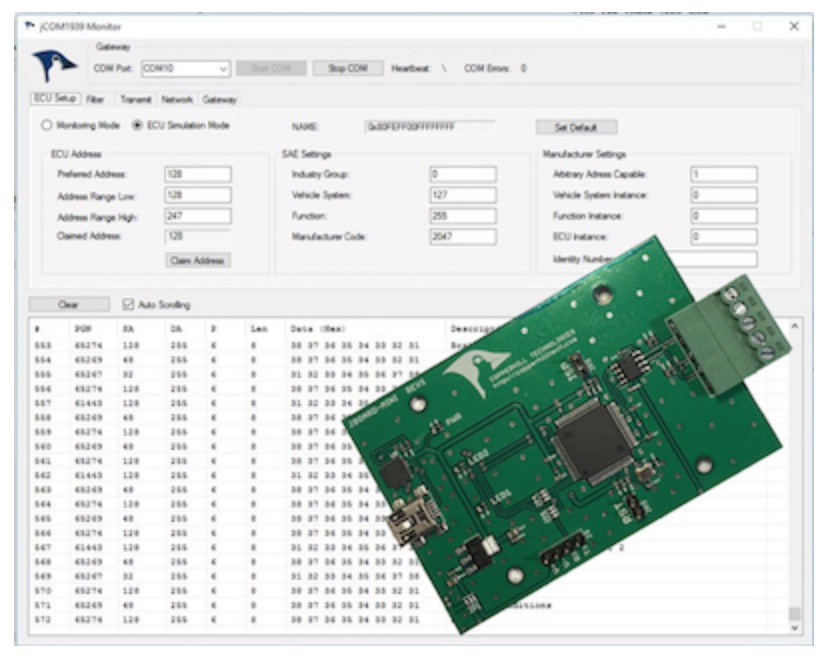Recent Posts
SAE J1939 & J1708 Vehicle Monitor Features More Than 15 Built-In Digital Gauges
Posted by on
The ScanGauge D monitoring device was designed for Diesel Pusher RVs, over the long-haul road trucks and other large diesel vehicles.
The ScanGauge D features more than 15 built-in digital gauges, five sets of trip data, the Performance Monitor as well as the exclusive X-Gauge programmable gauge system.
With the X-Gauge on your diesel pusher, you can monitor parameters such as EGT (Exhaust Gas Temp), Transmission Oil Temp, Engine Oil Temp and much more.
Features
- Affordable Compatibility in a Compact Design
- Specialized Cable - Works on Deutsch 9 pin and 6 pin plugs
- Monitor The Most Vital Systems
- Exclusive Programmable Gauge System
- Performance Monitor
- Affordable Compatibility in a Compact Design
- Specialized Cable - Works on 9 pin and 6 pin plugs
- Monitor The Most Vital Systems
- Exclusive Programmable Gauge System
- Performance Monitor. Easy to install no tools required
SAE J1939 ECU Simulator Board With USB Port
The jCOM.J1939.USB gateway board is a high-performance, low-latency vehicle network adapter for SAE J1939 applications. It allows any host device with a USB COM port to monitor SAE J1939 data traffic and communicate with the SAE J1939 vehicle network.
The board supports the full SAE J1939 protocol according to J1939/81 Network Management (Address Claiming) and J1939/21 Transport Protocol (TP). It is also supported by an extensive programming interface for Windows and Linux/Ubuntu applications, including full C/C++/C# source code for short time-to-market developments.
The strength of the board lies in the fact that the entire SAE J1939 protocol, including all timing requirements, is stored on-chip, thus taking the burden off the main system. The board uses a USB COM port to communicate with the main system, i.e. all data transfer is handled through a standard COM port access.
The communication protocol between the board and the main system is well documented and thus allows a porting to any computer system with a USB connection. Working source code libraries exist for Windows (C# under Visual Studio 2012/2013), Linux and its derivatives (C++ using Code::Blocks), and Raspberry Pi (C using the standard gcc compiler).
 Loading... Please wait...
Loading... Please wait...


